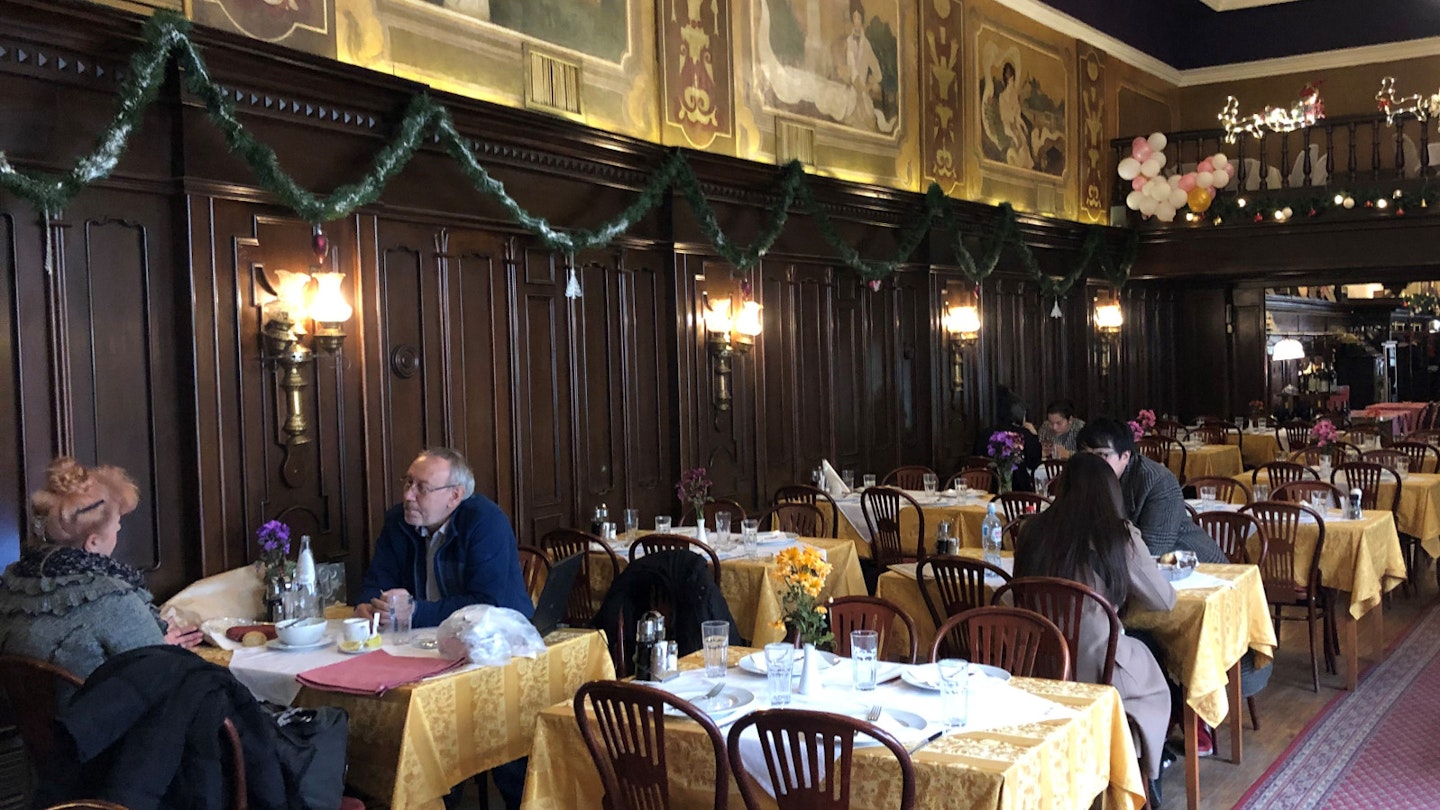Discover Belgrade’s Unique Kafanas
When the Ottomans conquered Belgrade in 1521, they introduced coffee culture to the city and established its first kafana – a traditional tavern or coffee house. Today, hundreds of kafanas line the city’s streets, serving as more than just places to enjoy food and drinks from the early mornings to late nights. These establishments are essential to the city’s social and commercial life, where patrons discuss current events, gossip, plan political rallies, and dance to the enchanting sounds of Serbian folk music.
Given their unique charm and significance, Belgrade’s kafanas, akin to London’s pubs or Vienna’s cafes, occupy an essential place in the city’s memory. Even when countless kafanas have closed or transitioned into modern restaurants and upscale cafes since the post-1990s privatisations, many are now experiencing a revival as destinations for food enthusiasts and nightlife seekers.
What Makes a Good Kafana?
While these diverse establishments vary in appearance and quality of food and service, the most crucial criterion for selecting a good kafana is its ability to maintain an inviting atmosphere. It should cater to a wide range of patrons—from long-time regulars to food-loving hipsters—coexisting harmoniously over cups of Turkish coffee or plates of ćevapi (grilled meatballs). A visit to Belgrade would be incomplete without experiencing at least one standout kafana. Below are our top picks:
Sip a Turkish Coffee at Ottoman-style ‘?’
The intriguingly named ‘?’ is housed in a charming Ottoman-style building from 1823, located on cobbled Kralja Petra Street. While tourists are increasingly frequenting this classic establishment, the rustic interior, featuring low wooden stools, vintage lighting, and a warming stove, is worth the visit. Be sure to try the traditional Turkish coffee, served with a piece of delightful ratluk (Turkish delight).
Admire the Refined Ambience of Dva Jelena
Dva Jelena (meaning ‘Two Deer’), has been a beloved fixture since 1832, located in Skadarlija, the bohemian heart of the city. Throughout its long history, Dva Jelena has expanded significantly; however, it has preserved the elegance of early 20th-century Belgrade, with art-nouveau murals, wooden panels, and retro gaslights. Although increasingly popular with tourists, the authenticity of the food and the regular evening performances of traditional music remain uncompromised.
Experience Belgrade’s Hustle and Bustle in Mornar
Authentic kafanas often reside in less flashy neighborhoods, like Mornar—a vibrant relic of the Yugoslav era located just steps from Republic Square. Here, seasoned waiters in crisp white shirts gracefully navigate through tables filled with locals, creating a lively atmosphere infused with the spirit of the 1970s.
Delight in Proleće’s Socialist-era Charm
For those enamored with socialist-era aesthetics, Proleće is a must-visit. With its polished zinc bar, dark wood paneling, and elegantly dressed waitstaff, this kafana is a favorite among Belgrade’s intellectual community. Visitors frequently spot members of the Serbian Academy of Arts and Sciences enjoying lunch or leisurely coffee, adding to the establishment’s charm.
Warm Up by the Fireplace at Orašac
Located further from the city center on busy Kralja Aleksandra Boulevard, Orašac is known for its spacious garden and cozy interior featuring two fireplaces. It offers a remarkable dining experience, from sizzling Serbian grills to Macedonian specialties like topeno sirenje (grilled cheese) and traditional čomlek (veal casserole). Additionally, guests can enjoy live traditional music on Thursday through Saturday evenings.
Party All Night at LM
A number of kafanas in Belgrade are renowned for their lively atmospheres, especially on Fridays and Saturdays when live music energizes guests. At these venues, bands engage with patrons, encouraging them to request songs—a charm that encourages tipping around 500RSD (approximately four euros) per song. One of the best spots to enjoy this lively tradition is LM, situated in Medaković. This kafana features performances by two prominent singers of Serbian and Vlach folk music, creating an exhilarating environment. From 9pm onwards, it becomes bustling with excited patrons; thus, prior dinner reservations are advised. Although it is a bit removed from the city center, the vibrant atmosphere and generous spirit of rakijas (local firewater) make it a worthwhile experience, allowing guests to unite in song and dance, embracing the camaraderie tradition fostered by kafanas for over five centuries.





